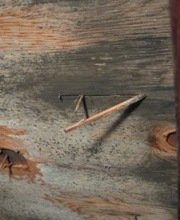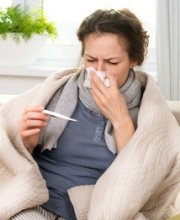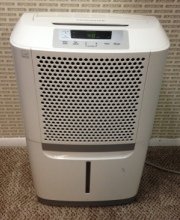Find a Mold Specialist Now
Click or Call, Toll-Free 24/7
Dealing With Trichoderma in your home
Trichoderma is an extremely common form of mold. It is also a unique strain of mold in some respects. It's widely used in the fields of biotechnology and agriculture because it fights many plant pathogens. One species is actually used as a fungicide. This is not the only kind of mold that has beneficial uses, though. The antibiotic penicillin is made from the mold penicillum.
That doesn't mean you want either of these molds growing in your home, however. Like all forms of mold, trichoderma can damage your home and make you sick.
Where You'll Find It
Outdoors, it is often found in soil. Indoors, it is frequently found on wood, drywall, wallpaper, various paper products, carpeting, and various textiles. It requires more water than some other strains of mold, so you're likely to find it after a home has been flooded or has had some significant water damage. You might also find it in high-moisture areas of the home, such as bathrooms (especially if they are carpeted), laundry rooms, and kitchens. It is sometimes found on air conditioner filters, as well, or in heating, ventilation and air conditioning ducts if the air conditioning has caused condensation.
Damage to Homes from Trichoderma
This strain of mold is considered to be highly cellulolytic, which means it contains large amounts of an enzyme called cellulase. Cellulase breaks down cellulose, which is the basic building block of many materials such as paper products, wood products, and many textiles. That's a scientific way of saying this type of mold is very destructive to those materials. It breaks them down, causing them to rot and crumble, and it can do that in a pretty short period of time.
If the mold gets into your air conditioner or HVAC system, the damage can be even greater. If a window air conditioner unit becomes contaminated with mold, the until will probably have to be discarded and replaced. You can read more about mold in window air conditioner units here. If you have central air conditioning, mold is a much bigger problem because it will likely spread into the your HVAC ducts. You can read more about mold in central air conditioning systems. Once mold gets into your HVAC system, it can easily spread throughout your entire house.
Health Problems Related to Trichoderma
All strains of mold can cause health problems and this one is no exception. Illness related to this strain of mold is most common in immune-compromised patients and is rare in healthy individuals. When mold-related illness does occur, though, it can be severe, especially in immune-compromised children.
Exposure to mold can cause illness in several ways. Inhalation of mold spores can irritate and inflame the airways, causing symptoms like coughing, sneezing, sore throats, and asthma attacks. Mold spores can also lead to infection in the lungs, like pneumonia. You can read more about how mold affects the lungs. Some people are also allergic to mold and experience an allergic reaction that may include respiratory symptoms and a rash or hives.
In addition to the above, some types of mold produce toxic substances called mycotoxins. Mycotoxins can cause illness and this type of mold produces mycotoxins.
If you're having health problems you think may be caused by exposure to mold, see your doctor as soon as possible. If you have a condition that suppresses your immune system and have discovered mold in your home, we recommend consulting your doctor even if you aren't experiencing any symptoms currently. Ask your doctor if it is safe for you to remain in your home until the mold can be removed. Your doctor may recommend avoiding any further exposure to mold just to be safe.
Mold Removal
If you've got mold in your home, you need to have it removed as soon as possible, in order to protect both your health and your home. The U.S. Environmental Protection Agency (EPA) recommends hiring a mold removal professional if you have mold covering a surface area greater than 10 square feet, if mold results after the home has been flooded with water that might have been contaminated with sewage or other hazardous substances, or if there is mold in your HVAC system. You can schedule a free in-home consultation with an experienced mold removal professional to discuss your needs and even if you end up choosing to do the work yourself, you'll benefit from some expert advice. You can find qualified mold removal professionals offering free consultations in your area by following the link provided.
Return From Trichoderma To Our Main Mold Types Page
Privacy Policy Terms and Conditions Accessibility Do Not Sell My Information Disclaimer Contact Us





